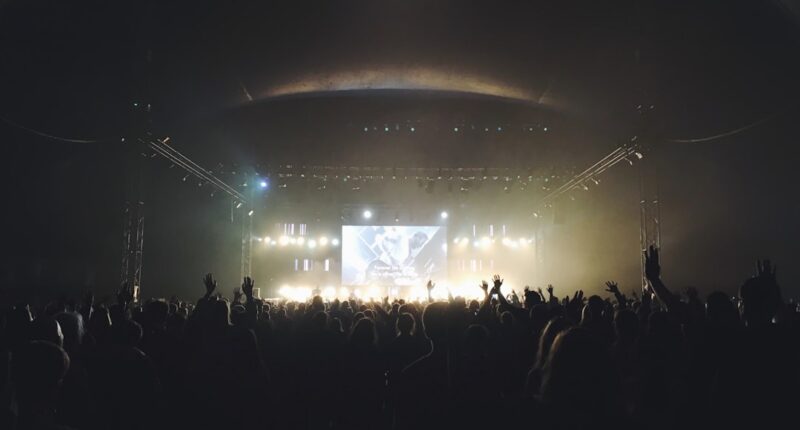The landscape of the Indian music industry has undergone a remarkable transformation in recent years, largely due to the emergence of music influencers. These individuals, often leveraging social media platforms, have become pivotal in shaping musical tastes and trends across the nation. Music influencers are not just artists; they are content creators who engage with their audience through various digital mediums, including YouTube, Instagram, and TikTok.
Their ability to connect with fans on a personal level has redefined how music is consumed and appreciated in India, making them integral to the contemporary music scene. As the digital age continues to evolve, the role of music influencers has expanded beyond mere promotion of songs or albums. They have become trendsetters, curators, and even educators in the realm of music.
By sharing their unique interpretations, covers, and original compositions, these influencers have democratized music creation and consumption. This shift has allowed for a more diverse range of musical expressions to flourish, reflecting the rich tapestry of India’s cultural heritage while also embracing global influences. The rise of music influencers signifies a new era where traditional barriers in the music industry are being dismantled, paving the way for fresh talent and innovative sounds.
Key Takeaways
- Music influencers in India are playing a significant role in shaping the music industry and influencing the audience’s taste in music.
- The rise of music influencers in India has been fueled by the increasing popularity of digital platforms and social media, providing a platform for artists to reach a wider audience.
- Music influencers have a significant impact on the Indian music scene by introducing new genres, promoting independent artists, and creating trends that resonate with the audience.
- Top music influencers in India have unique styles and contributions, from creating original music to curating playlists and promoting emerging talent.
- Music influencers are changing the game in the Indian music industry by leveraging their social media presence to collaborate with brands, reach new audiences, and create innovative content.
Rise of Music Influencers in the Indian Music Industry
The Rise of Social Media in Indian Music
The proliferation of social media platforms in India has given aspiring artists a stage to showcase their talents. With the immense popularity of platforms like YouTube and Instagram, many musicians have harnessed these tools to reach wider audiences without the need for traditional record labels. This shift has empowered countless individuals to share their music directly with fans, leading to a surge in independent artists who have gained recognition through viral videos and engaging content.
Democratization of Music and Community Building
The accessibility of these platforms has not only democratized music production but has also fostered a sense of community among fans and creators alike. The COVID-19 pandemic accelerated this trend as live performances were curtailed, prompting artists to pivot towards digital engagement. Many musicians turned to live streaming and virtual concerts, which allowed them to maintain a connection with their audience while showcasing their work.
A New Era of Creativity and Collaboration
This period saw an explosion of creativity as influencers experimented with different genres and formats, from short-form videos to elaborate music collaborations. The result was a vibrant ecosystem where established artists collaborated with emerging influencers, creating a rich tapestry of sounds that resonated with diverse audiences across India.
Changing the Music Landscape
This evolution has not only changed how music is produced but has also influenced how it is marketed and consumed. The rise of music influencers in India has paved the way for a new generation of artists who are redefining the music industry and pushing its boundaries.
Impact of Music Influencers on Indian Music Scene

The impact of music influencers on the Indian music scene is profound and multifaceted. They have played a crucial role in breaking down regional barriers by promoting local languages and genres that may have previously been overlooked by mainstream media. For instance, influencers who sing in regional dialects or showcase traditional instruments have brought attention to folk music and regional styles, allowing them to gain traction on national and international platforms.
This has led to a renaissance of sorts for various musical traditions that were at risk of fading into obscurity, as influencers breathe new life into them through modern interpretations. Additionally, music influencers have significantly altered the dynamics of audience engagement. Unlike traditional artists who often rely on radio play or album sales for recognition, influencers cultivate their fan base through direct interaction on social media.
This two-way communication fosters a sense of loyalty and community among followers, who feel personally connected to the influencer’s journey. As a result, when these influencers release new music or collaborate with brands, they often enjoy immediate support from their dedicated fan base. This shift in engagement strategies has not only changed how music is marketed but has also created new opportunities for artists to monetize their work through sponsorships and merchandise sales.
Top Music Influencers in India: Their Unique Styles and Contributions
| Influencer | Unique Style | Contribution |
|---|---|---|
| Shankar Mahadevan | Classical fusion with contemporary music | Bringing Indian classical music to mainstream audience |
| Arijit Singh | Soulful and emotive singing | Popularizing romantic and emotional songs |
| Neha Kakkar | High-energy and peppy performances | Revolutionizing playback singing in Bollywood |
| Vishal Dadlani | Rock and electronic music fusion | Creating chart-topping hits with unique sound |
Among the myriad of music influencers in India, several stand out due to their unique styles and significant contributions to the industry. One such influencer is Neha Kakkar, whose infectious energy and versatile vocal range have made her a household name. With millions of followers across various platforms, Kakkar has successfully bridged the gap between traditional Bollywood music and contemporary pop sounds.
Her ability to connect with fans through relatable content—often sharing snippets of her life and musical journey—has endeared her to audiences both young and old. Kakkar’s influence extends beyond her singing; she actively promotes new talent by collaborating with emerging artists, thereby nurturing the next generation of musicians. Another notable figure is Prateek Kuhad, whose introspective songwriting and soothing melodies have garnered him a dedicated following.
Kuhad’s rise to fame exemplifies how music influencers can transcend geographical boundaries; his songs resonate not only with Indian audiences but also with listeners around the globe. His unique blend of indie-folk and pop has attracted attention from international platforms, further solidifying his status as a global artist. Kuhad’s commitment to authenticity in his music—often drawing from personal experiences—has inspired many aspiring musicians to embrace their individuality rather than conforming to mainstream expectations.
How Music Influencers are Changing the Game in the Indian Music Industry
Music influencers are fundamentally changing the game in the Indian music industry by redefining what it means to be an artist in today’s digital landscape. They are not just performers; they are multifaceted creators who engage in storytelling through various forms of media. This shift has led to an increase in the production of diverse content that goes beyond traditional music videos.
Influencers often create behind-the-scenes footage, vlogs about their creative processes, and interactive sessions with fans that provide deeper insights into their artistry. This holistic approach allows fans to feel more connected to the music and its creators, fostering a sense of intimacy that was previously absent in the industry. Furthermore, the rise of music influencers has prompted established artists and record labels to adapt their strategies in order to remain relevant.
Many traditional musicians are now collaborating with influencers to tap into their vast audiences, recognizing that these digital creators possess unique insights into current trends and consumer preferences. This collaboration often results in innovative projects that blend different genres and styles, pushing the boundaries of what is considered mainstream music in India. As a result, the industry is witnessing an exciting fusion of sounds that reflects both contemporary influences and traditional roots, ultimately enriching the musical landscape.
Collaborations and Partnerships: Music Influencers and Brands

The synergy between music influencers and brands has become increasingly prominent in recent years, creating mutually beneficial partnerships that enhance both parties’ visibility and reach. Brands recognize the power of influencers in shaping consumer behavior; thus, they often collaborate with popular musicians to promote products or services through engaging content that resonates with audiences. For instance, many influencers create sponsored posts featuring brand endorsements woven seamlessly into their musical narratives, making promotions feel organic rather than forced.
This approach not only boosts brand awareness but also reinforces the influencer’s credibility as an artist who aligns with values that resonate with their followers. Moreover, these collaborations often extend beyond mere endorsements; they can lead to co-branded projects that showcase both the influencer’s artistic vision and the brand’s identity. For example, some influencers have launched exclusive merchandise lines or collaborated on limited-edition products that reflect their unique style while appealing to their fan base.
Such partnerships allow brands to tap into niche markets while providing influencers with additional revenue streams that support their creative endeavors. As this trend continues to grow, it is likely that we will see even more innovative collaborations that blur the lines between art and commerce within the Indian music industry.
Challenges Faced by Music Influencers in India
Despite their growing prominence, music influencers in India face several challenges that can hinder their progress in an increasingly competitive landscape. One significant hurdle is the saturation of content on social media platforms; as more artists emerge and vie for attention, standing out becomes increasingly difficult. Influencers must constantly innovate and adapt their content strategies to maintain relevance while ensuring they remain true to their artistic vision.
This pressure can lead to burnout as creators strive to meet audience expectations while navigating the ever-changing algorithms of social media platforms. Additionally, many music influencers grapple with issues related to copyright and intellectual property rights. As they create original content or reinterpret existing songs, navigating legal frameworks can be complex and daunting.
Instances of plagiarism or unauthorized use of their work can lead to disputes that detract from their creative focus. Furthermore, securing financial stability can be challenging for independent artists who rely heavily on sponsorships or ad revenue from platforms like YouTube. The unpredictability of income streams can create stress for influencers trying to sustain their careers while pursuing their passion for music.
The Future of Music Influencers in the Indian Music Industry
Looking ahead, the future of music influencers in the Indian music industry appears promising yet complex as they continue to shape cultural narratives through their artistry. As technology advances and new platforms emerge, influencers will likely explore innovative ways to engage with audiences—be it through virtual reality concerts or interactive experiences that blend gaming with music. The integration of artificial intelligence in music creation may also open up new avenues for collaboration between human artists and technology-driven tools, further diversifying the soundscape.
Moreover, as societal attitudes towards mental health and well-being evolve, there is potential for influencers to use their platforms for advocacy beyond just entertainment. Many musicians are already addressing important social issues through their work; this trend may expand as influencers leverage their reach to promote causes they are passionate about. Ultimately, as they navigate challenges while embracing opportunities for growth, music influencers will continue to play a vital role in shaping not only the Indian music industry but also its cultural landscape as a whole.
Their ability to connect deeply with audiences ensures that they will remain at the forefront of this dynamic evolution for years to come.









